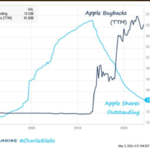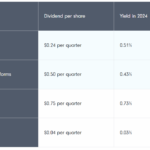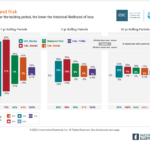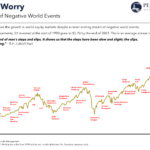In this blog, I have written many posts about the advantages of owning foreign stocks. For example, they offer a portfolio the benefits of diversification. However holding overseas equities in retirement accounts such as Traditional IRA, Roth IRA and other qualified retirement has many disadvantages. In this post, let’s take a quick look at two expenses that will reduce the return of an investment. This cut in returns can sometimes be substantial.
1.ADR Fee:
This is a fee that a custodian such as BNY Mellon, Citibank, etc. charges for an ADR stock. From an investor perspective this is simply a fee that one has to pay for the privilege of owning a particular overseas stock. This fee is usually a few cents a share. Still it is money that is lost as this fee cannot be written off in taxes and also it reduces the return. Moreover if a company does not pay a dividend this fee will be taken by the broker directly from an investor’s account. If a dividend is paid, then this fee will be deducted from the dividend by the broker and passed on to the custodian. So either way the money that could help grow the portfolio goes out as fees.
Here are a few a examples of the ADR fee:
a.Company: Ecopetrol SA (EC)
Country: Colombia
The ADR fee for Ecopetrol this year is $0.04 per share. So for 100 shares this fee equals to $4. Someone holding 1,000 shares would pay $40. So this year an investor loses $40 from his retirement account just for holding Ecopetrol.
An investor holding a US company would not have to pay this fee. When this fee is deducted from a dividend payment, then the effect of compounding for the $40 is lost forever as well. At about the current trading range of $10 a share one could have easily accumulated another 4 shares for this $40.
b.Company: Valeo SA (VLEEY)
Country: France
The ADR fee for Valeo this year is $0.02 per share. So for 100 shares this fee equals to $2.
c.Company: National Australia Bank Ltd (NABZY)
Country: Australia
The ADR fee for NABZY this year is $0.01 per share. This is the least amount charged by custodians.
2.Dividend Withholding Tax:
Dividend Withholding Tax is simply a tax imposed by the government on dividends paid out to foreign investors by a domestic firm. For example, the German government imposes this tax on Americans receiving dividends from a German company. From an investor point of view this is again an unnecessary expense just to own shares of a German firm. This tax is charged by most governments because a local resident would report this dividend on their tax returns and pay applicable taxes. Since a foreigner does not file taxes in the country where the firm is based this tax is automatically cut from any dividends paid. The DWT can range from 0% to as high as 35%.
Owing a Swiss stock in retirement account will lead to a 35% cut in dividends received. This is huge indeed especially since account is designed for building a nest egg for retirement.
In the case of Ecopetrol until last year there was no Dividend Withholding Taxes. But this year a 10% rate has been introduced. So 1/10th of all dividends paid goes to Colombia. While a 10% rate may not be too high over the course of many years it can turn into a big amount.
Germany charges about 27% in DWT. If a $100 dividend is paid out, $27 goes to the German government.
It should pointed out that some countries such as Singapore, Sweden, UK (excluding REITs), etc. do not charge this tax. So holding stocks from these accounts in retirement accounts is not so bad.
So the key takeaway is to consider the implications of owing foreign stocks in retirement accounts. Otherwise one would lose a nice chunk of change each year unnecessarily.
Disclosure: Long EC, VLEEY, NABZY



